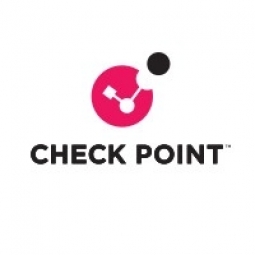Download PDF
Osmose Enhances Endpoint Security with Check Point Solution
Technology Category
- Cybersecurity & Privacy - Endpoint Security
- Cybersecurity & Privacy - Security Compliance
Applicable Industries
- Chemicals
- National Security & Defense
Applicable Functions
- Quality Assurance
Use Cases
- Inventory Management
- Tamper Detection
The Challenge
Osmose, a leader in wood preservation technology and asset management, was faced with the challenge of supporting the needs of 800 users in their corporate headquarters and 200 remote users. The remote users, who frequently traveled and used their laptops in various locations worldwide, posed a significant security risk. The company's sensitive and proprietary information was at risk of being compromised due to potentially unsecured endpoints logging in from all over the world. Osmose had a limited IT resource and struggled to ensure these endpoints were secure before accessing the corporate network. As a result, they instituted a closed Internet access policy that required remote users to whitelist the hotel's network before accessing the corporate network. This policy was not well received by users, and many stopped trying to use the Internet access available in hotels. Another challenge was the issue of basic Microsoft Security updates. Many employees neglected to download the latest improvements, further compromising the security of the network.
About The Customer
Osmose is a leader in the research and development of new products and services in all areas of wood preservation technology as well as Utility and Railroad asset management. The company is committed to quality, technical support, and service, and has built an impressive network of suppliers throughout the United States and in more than 70 countries around the world. Osmose had to support the needs of 800 users in their corporate headquarters and 200 remote users, who frequently traveled and used their laptops in various locations worldwide.
The Solution
Osmose found a solution to their security challenges with Check Point Endpoint Security. This solution provided a single agent for endpoint security that combined firewall, Network Access Control (NAC), program control, antivirus, anti-spyware, data security, and remote access. It offered comprehensive protection as part of Check Point’s renowned Unified Security Architecture. Endpoint Security also forced endpoint compliance with predetermined security policies, ensuring the same security protections across the board. Osmose was able to ensure the ability to sign on from any hotel utilized by company employees even with a restricted internet access policy in place. By centralizing management to facilitate updates, the same protections were pushed to all endpoints as they logged onto the network, standardizing all machines on the same platform. Osmose was also able to enforce security policies and patch levels on the endpoints.
Operational Impact
Quantitative Benefit
Related Case Studies.

Case Study
Honeywell - Tata Chemicals Improves Data Accessibility with OneWireless
Tata was facing data accessibility challenges in the cement plant control room tapping signals from remote process control areas and other distant locations, including the gas scrubber. Tata needed a wireless solution to extend its control network securely to remote locations that would also provide seamless communication with existing control applications.

Case Study
Advanced Elastomer Systems Upgrades Production
In order to maintain its share of the international market for thermoplastic elastomers AES recently expanded its Florida plant by adding a new production line. While the existing lines were operating satisfactorily using a PROVOX distributed control system with traditional analog I/O, AES wanted advanced technology on the new line for greater economy, efficiency, and reliability. AES officials were anxious to get this line into production to meet incoming orders, but two hurricanes slowed construction.
Case Study
Wireless GPS Tracking & Security Monitoring
Enhancing the security of hazardous freight and ensuring compliance with Homeland Security’s Transportation Security Administration mandate that all trains carrying chemicals capable of creating a toxic inhalation condition are equipped with on-board safety monitoring systems.

Case Study
Data Capture for Afghanistan Forces
Electronic equipments on the field of Afghanistan provided information on the status of the vehicle and to identify potential threats surrounding it to the British Force. The monitoring and interpretation of this data requires robust and sophisticated digitization for data capture and communication.

Case Study
Field Device Asset Management For Chemical Company in China
Chinese chemical subsidiary of multinational corporation serves customers throughout the world. Sales offices and research and technology centers are strategically located to provide rapid response to customer requests. Just two workers were assigned to maintain thousands of intelligent instruments in three production units, so they could do little more than react to device issues as they appeared. This costly maintenance method inevitably led to unexpected downtime when a critical instrument failed. Plant management recognized the need to change from reactive to predictive maintenance for all assets, including instruments and control valves, but help was needed in implementing such a technology-based initiative.






